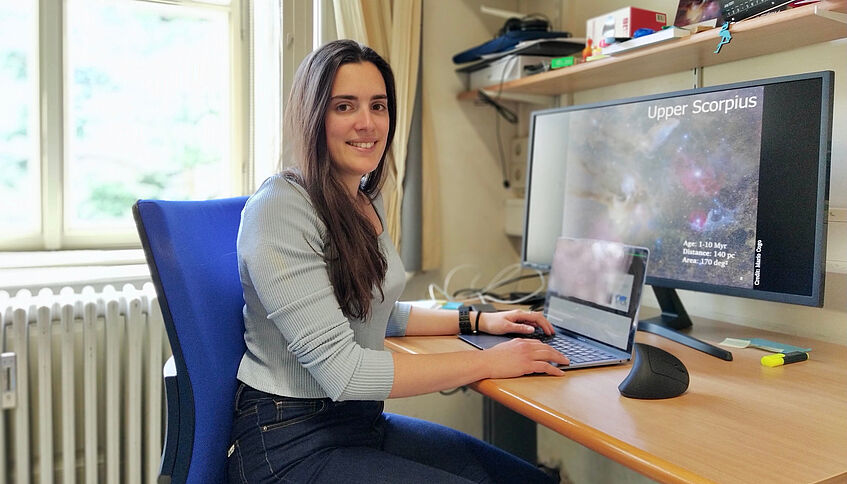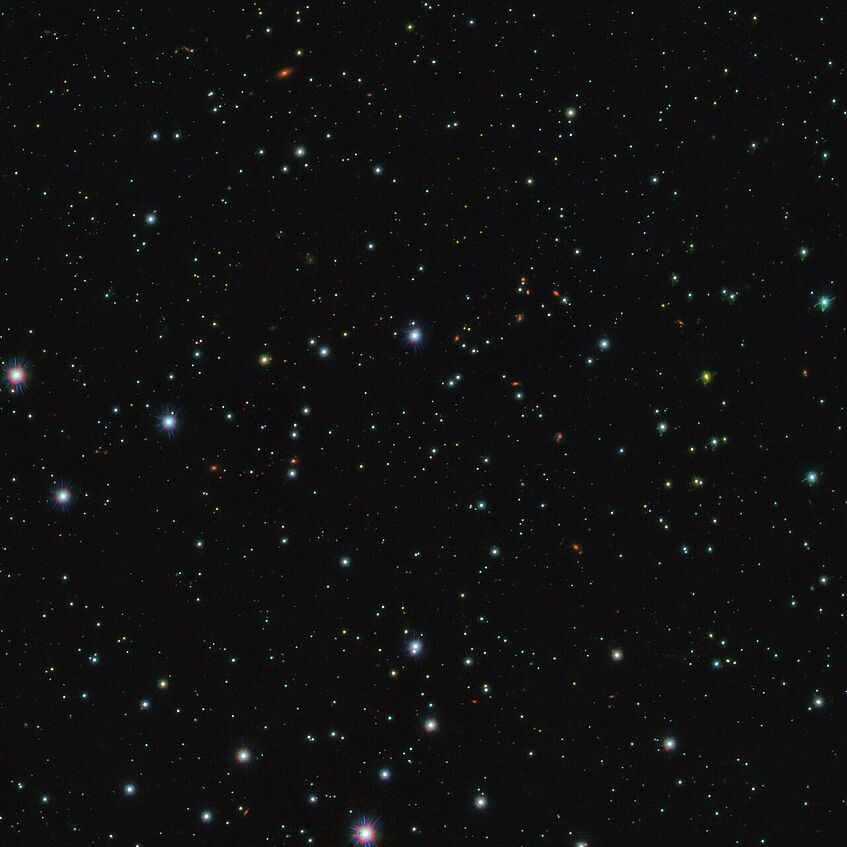European Astronomical Society awards best PhD Thesis

Núria Miret Roig at her working place in the Univeristy of Vienna
The 2022 MERAC Prize for the Best PhD Thesis in Observational Astrophysics is awarded to Núria Miret Roig (University of Vienna) for the discovery of many new free-floating planets, which illuminated the origin of these exotic nomad planets.
Núria Miret Roig has been awarded for the best PhD Thesis in Observational Astrophysics by the European Astronomical Society through FONDATION MERAC. She will give a plenary lecture at the European Astronomical Society Annual Meeting 2022 to be held in Valencia, Spain, in June. The main result of her doctoral research is the discovery of about a hundred new free-floating planets (FFPs) in the region encompassed by the Upper Scorpius stellar OB association and the Ophiuchus star-forming region. This sample is the largest ever discovered and constitutes an important step to uncovering the origins and characteristics of these mysterious galactic nomads.

This image shows a small area of the sky in the direction of the region occupied by Upper Scorpius and Ophiucus. It zooms in on a recently discovered rogue planet, meaning a planet that does not orbit a star but instead roams freely on its own. The rogue planet is the tiny, bright red dot at the very centre of the image.
Credit: ESO/Miret-Roig et al.
Miret Roig concluded her PhD in three years with five first author papers in high impact journals. Her work was conducted at the Laboratoire d’Astrophysique de Bordeaux, University of Bordeaux (France), under the supervision of Hervé Bouy and Javier Olivares. More detailed information on this study can be read in the press release from the publication of this study in Nature Astronomy.
“Doing a PhD is a big challenge, one has to overcome the numerous difficulties, but it is also full of great moments that make everything worthwhile in the end. Being awarded this prize is very gratifying. It would not have been possible without the excellent team with which I had the pleasure to collaborate.” stresses Miret Roig.
The award-winning researcher pursued a BSc in Physics and a MSc in Astrophysics at the University of Barcelona. She obtained her PhD in 2020 at the University of Bordeaux, France, which was awarded the Science and Technology Thesis Prize of the same university. Miret Roig's expertise includes acquiring and analyzing massive observational datasets of nearby, young stars to derive fundamental properties such as the initial mass function, the spatial distribution, and the kinematics and dynamics of these systems. She has been co-PI of several successful proposals at major telescopes such as the GTC, VLT and CTIO, and has led several studies on different aspects of the star formation process. Miret Roig moved recently to a postdoc position at the University of Vienna, where she investigates the formation and origin of young stars in the solar neighborhood.
“I hope this prize helps young people who feel attracted to science and especially to astronomy, to be encouraged to pursue scientific careers. Excellent female professors I had in University left a strong impression on me. I wish this prize plays a similar role with young women interested in astronomy, we should not doubt ourselves!” concludes the awardee.
More information:
FONDATION MERAC (Mobilizing European Research in Astrophysics and Cosmology) is a non-profit foundation started in 2012 with headquarters in Switzerland to recognize and support young European astronomers.
There are yearly three MERAC Prizes awarded by the European Astronomical Society for each of the three categories:
★ Theoretical Astrophysics
★ Observational Astrophysics
★ New Technologies (Instrumental/Computational/Multi-Messenger)
The prizes alternate by year for:
★ Best Early Career Researcher Prizes (on odd years)
★ Best Doctoral Thesis Prizes (on even years)
The awardees are also eligible for further support from the FONDATION MERAC.
